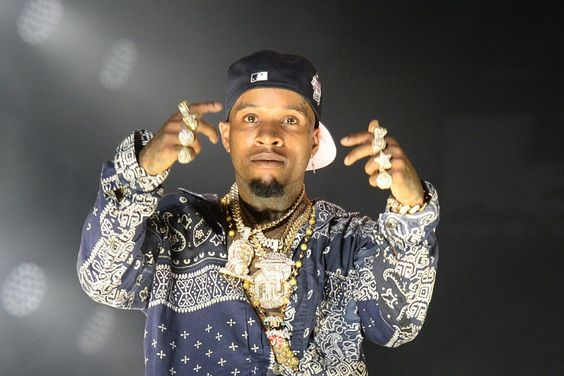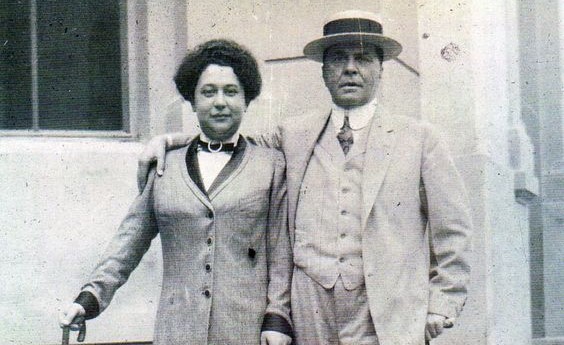Tory Lanez has become one of the most talked-about artists in the music industry today. But who is he really? What is the truth behind his rise to fame and success? In this article, we will delve into the age of Tory Lanez and uncover the details that have been shrouded in mystery and speculation.
Tory Lanez has captivated audiences with his unique sound and charismatic presence. As he continues to make waves with his music, fans and critics alike are eager to learn more about the man behind the music. However, there have been conflicting reports and rumors surrounding his age, making it difficult to separate fact from fiction.
In order to truly understand and appreciate Tory Lanez’s journey, it is important to uncover the truth about his age. This article will provide an in-depth look at the evidence and information available, unraveling the mystery behind the age of Tory Lanez. Get ready to discover the truth and gain a deeper understanding of this enigmatic artist.
Early Life and Career
Tory Lanez, the renowned Canadian rapper, singer, and songwriter, burst onto the music scene with his unique blend of hip-hop and R&B at a young age. Born on July 27, 1992, in Brampton, Ontario, he showed an early interest in music and honed his skills by performing at various local events. Lanez’s path to success was not without hurdles – growing up in a tough neighborhood exposed him to adversity from an early age.
Lanez’s career breakthrough came with the release of his mixtape Conflicts of My Soul: The 416 Story, which garnered widespread acclaim for its raw emotion and intimate storytelling. His versatile musical style quickly caught the attention of industry insiders and catapulted him into the spotlight. From humble beginnings to achieving international recognition, Tory Lanez’s unwavering determination has solidified his status as a trailblazing musician whose journey continues to inspire emerging artists around the world.
Controversies and Legal Issues
One of the most gripping controversies in recent memory revolves around the legal troubles of rapper Tory Lanez. Accused of allegedly shooting fellow artist Megan Thee Stallion, Lanez’s case has ignited a firestorm of debate and speculation within the music industry and beyond. With conflicting accounts and a lack of concrete evidence, this high-profile legal battle has sparked heated discussions about accountability, gender dynamics, and the justice system.
Amidst the intense scrutiny surrounding Tory Lanez’s case, important questions about privilege, power dynamics, and bias within the legal system have come to light. The deep dive into this controversy offers a sobering glimpse into how celebrity status can influence judicial proceedings and public opinion. As this complex saga continues to unfold, it serves as a stark reminder of the intersection between entertainment culture and the legal arena – shedding light on larger societal issues that demand critical examination and discourse.
The Truth Behind the Scandals
The recent scandal involving rapper Tory Lanez has once again brought to light the issue of accountability in the entertainment industry. The truth behind this scandal goes beyond the surface allegations and delves into a deeper conversation about power dynamics and systemic abuse. It’s crucial to recognize that scandals like these are not simply isolated incidents, but symptoms of a much larger problem within the music industry.
One fresh insight to consider is how these scandals often expose the unequal power dynamics that exist within the industry. When public figures face allegations, it’s important for us to critically examine not only their actions but also the larger systems that enable and protect such behavior. By looking past mere sensationalism and focusing on these underlying power imbalances, we can begin to address the root causes of these scandals and work towards creating a more equitable and inclusive music industry.
Another perspective worth considering is how these scandals impact our perception of artists’ artistry. Recognizing artists as complex individuals with multifaceted identities can help us move away from idolization or demonization, and instead engage in more nuanced discussions surrounding accountability, growth, and redemption. This allows for a shift in our approach toward handling such situations with empathy without excusing harmful behavior, promoting a culture where constructive conversations around responsibility can thrive.
Impact on Music Industry
The music industry has been profoundly impacted by the rise of independent artists and digital platforms. Artists like Tory Lanez have leveraged social media and streaming services to build massive followings, bypassing traditional record labels and taking control of their own careers. This has transformed the dynamics of the industry, giving a voice to underground talent and challenging the traditional gatekeepers of music.
The emergence of online collaborations and virtual performances has revolutionized how artists connect with their audiences. The pandemic accelerated this shift, forcing musicians to innovate and find new ways to share their art. As a result, we’ve seen an unprecedented level of creativity in how music is produced, marketed, and consumed – breaking down conventional barriers and opening up new opportunities for aspiring artists. The democratization of music creation and distribution has truly reshaped the landscape of the industry, paving the way for diverse voices and sounds to thrive like never before.
Fan Reactions and Public Perception
Tory Lanez, known for his controversial behavior and legal troubles, has sparked intense reactions from fans and the public. Despite his undeniable talent as a rapper and singer, fan reactions have been notably divided due to the serious allegations against him. His supporters often focus on his musical prowess while critics emphasize his alleged actions, leading to polarizing discussions that dominate social media platforms.
As public perception of Tory Lanez continues to evolve, it’s clear that the impact of personal behavior on an artist’s career is a multifaceted issue. The incongruity between enjoying an artist’s work and condemning their actions raises questions about accountability in the entertainment industry. Moreover, the influence of fan reactions and public perception has significant implications for an artist’s longevity in the spotlight. As we navigate these complexities, it’s essential to consider how our support or criticism shapes not only individual artists but also broader cultural conversations surrounding accountability and artistic merit.
Conclusions
In conclusion, Tory Lanez is a multifaceted and enigmatic figure in the music industry, with a complex background and a controversial public image. The intricacies of his personal life and professional career shed light on the complexities of fame, talent, and responsibility. As fans and critics continue to grapple with the various facets of his persona, it becomes evident that understanding Tory Lanez requires a nuanced approach that takes into account the many layers of his identity. Ultimately, delving into the complexities of Tory Lanez offers an opportunity for reflection on the intersection of artistry, celebrity, and accountability in today’s entertainment landscape. It is crucial to engage in thoughtful discussions and critical analysis when navigating the intricate narrative surrounding this influential artist.




